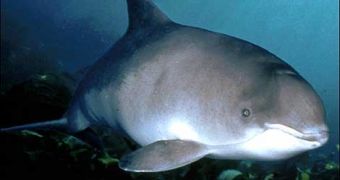Just yesterday, the 64th annual meeting of the International Whaling Commission (IWC) came to an end.
A bird's eye view over the decisions taken there seems to indicate that, although marine mammals are still left without the sanctuaries they need, there is this hope for the survival of these species.
Most of the environmental groups and national leaders present at this year's gathering, which took place in Panama, agreed on implementing a series of rules and regulations that, by controlling activities such as the fishing and drilling industries, would help protect our planet's whales and dolphins.
Thus, they believe that, first and foremost, efforts must be made to reduce marine debris and minimize the subsea noise that results from said activities.
Moreover, the case was made for the need to minimize fishing bycatches.
As well as this, due consideration was given to potential threats such as accidental oil spills, especially given the fact that as of this month Shell is to begin drilling in the Arctic waters near Alaska, and several other similar companies have also made public their decision to drill in the Russian Far East.
Taking into consideration all of these aspects, the IWC recommended that both Mexico and New Zealand no longer fished in waters known to be the preferred natural habitat for these animals.
Interestingly enough, it was suggested that the UN should start keeping a close eye on whaling activities taking place in the waters outside the IWC's control, but no final decision was taken with respect to this matter.
Last, but not least, it was agreed that this annual meeting should be turned into a bi-annual one, most likely because whale and dolphin conservation is becoming a more pressing issue as days go by.
It is our belief that, should the countries and the conservationists present at this conference work together towards implementing the protocols they have agreed upon these past few days, the marine mammals still living in the wild might actually have a chance of survival.
WWF has more information on this topic.

 14 DAY TRIAL //
14 DAY TRIAL //